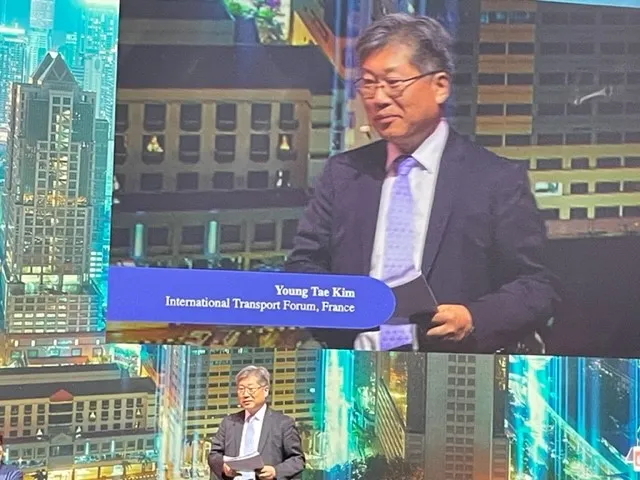
Changing the way we share road space is not just changing the face of our cities - it is also creating societal change, agreed the panel in one of ITS European Congress 2022's plenary sessions.
Moderator Margriet Van Schijndel-de Nooij, mobility programme director at TU Eindhoven, said: "Sharing city spaces is shaping cities, it's changing the urban fabric - but it's also changing the social fabric."
The session, entitled Sharing City Space: the 'smart' solution for all, included statements and discussion from Ricardo Munoz Nunez of Google, Bart Lannoo of Be-Mobile and Airbus Urban Mobility's Vassilis Agouridas.
International Transport Forum secretary general Young Tae Kim was also speaking, and said: "There are some difficulties we are facing right now: infrastructure space is limited. We cannot create more space, we have to deal with the existing space."
"When you add in climate issues and social issues, it is really tough - but nevertheless we need to learn from each other because we do not have a single answer across every society in every country."
Van Schijndel-de Nooij concluded: "Learning also from mistakes and failures is very important. Some practical tools and concrete steps are definitely needed. And I think we sensed an urgency for making these steps in a co-creating approach to really get ahead with this."










